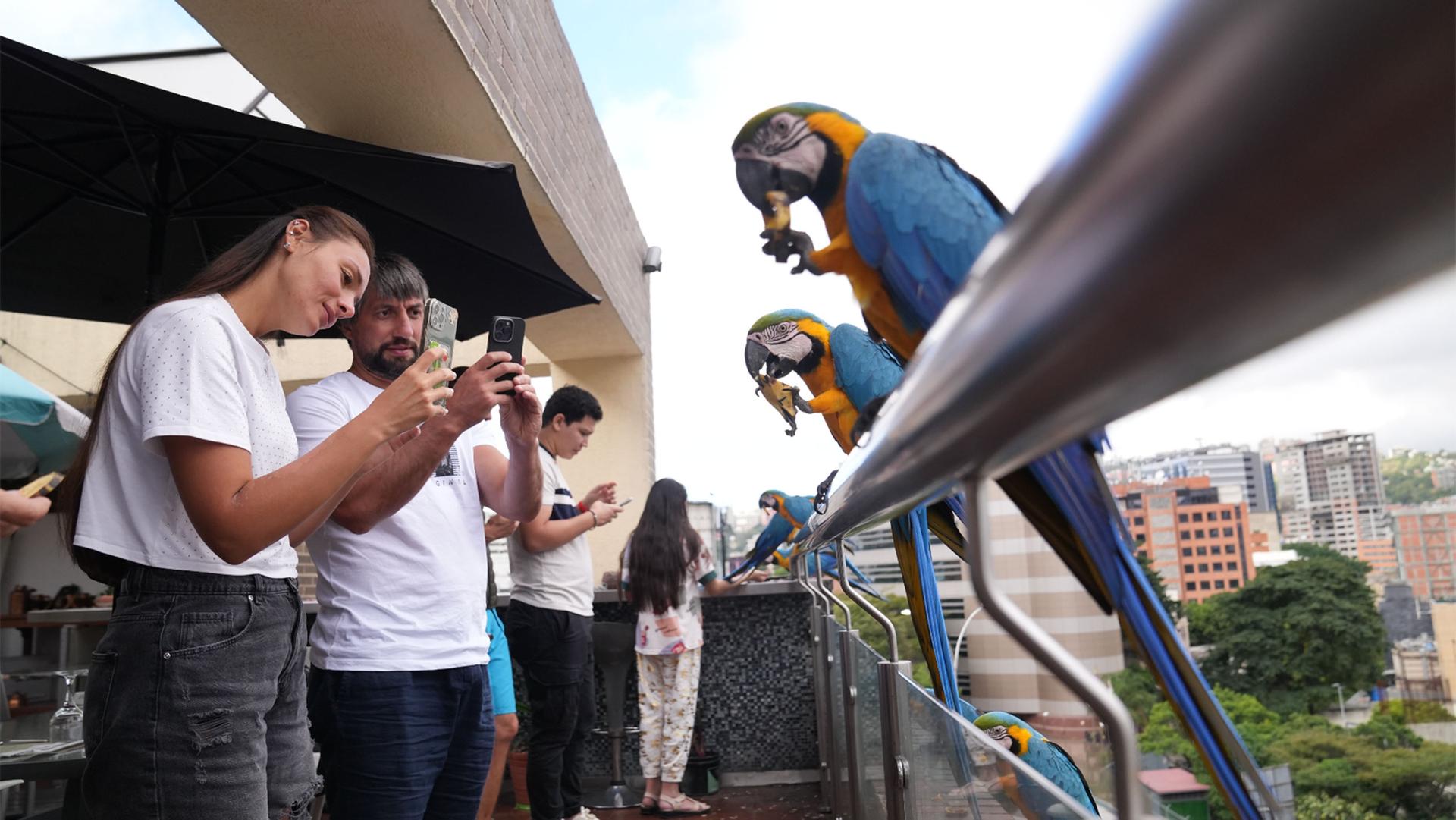Macaws lighten things up in Venezuela’s capital, and form a special bond with residents
As sunset approached, a colorful feast was underway at Hugo Losada’s home. Twenty blue and gold macaws flew into his garden to feed on sunflower seeds and fruits.
One of the parrots perched on Losada’s head like a big hat and fed on a banana that he held in his hand.
“These birds just fill me up with joy,” said Losada, who has been feeding macaws for the past two years. “You can even go on vacation, and they’ll sort out how to get their own food.”
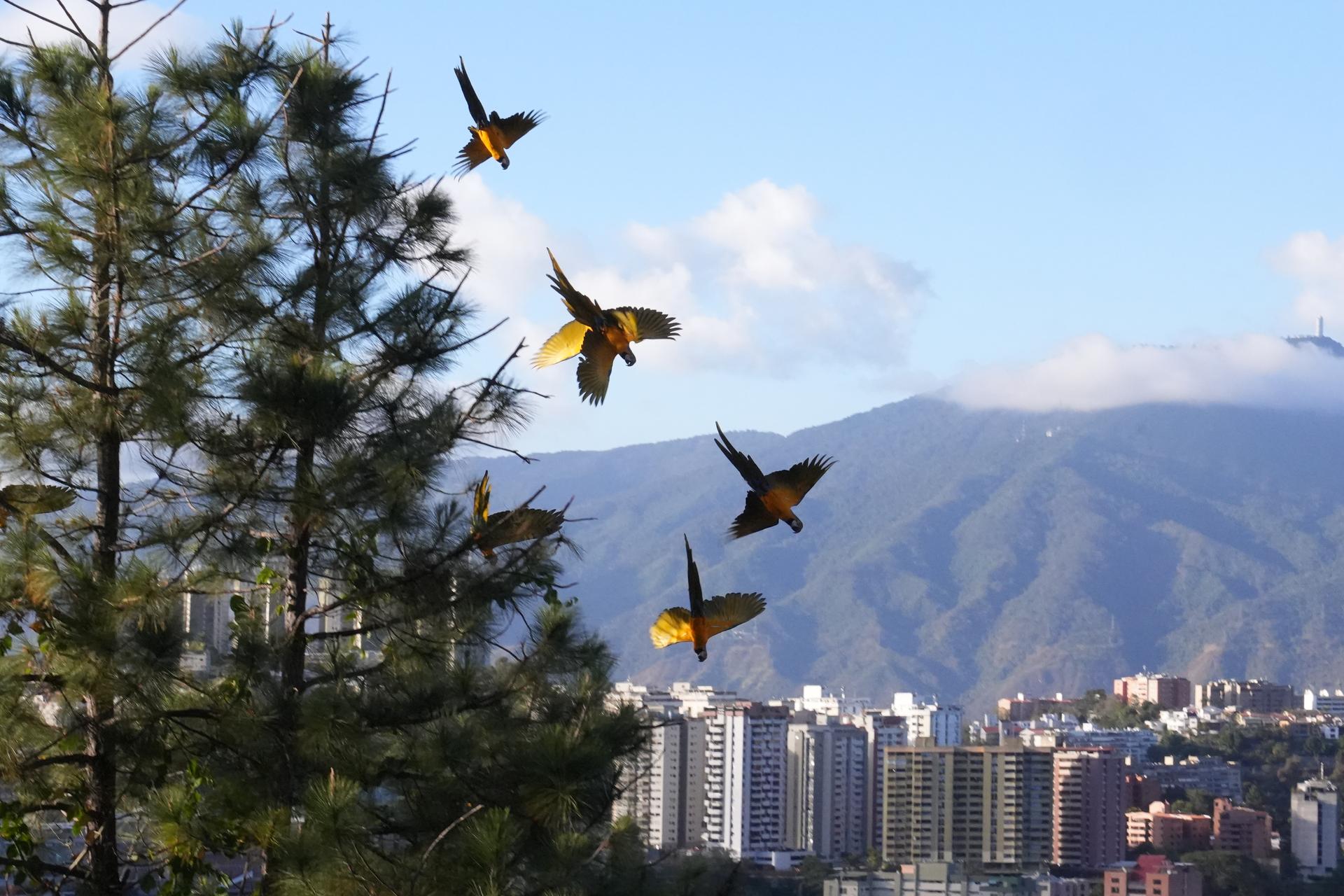
Every day, hundreds of macaws fly around Venezuela’s capital city in search of food, dazzling residents with their bright colors and peculiar calls.
The birds are not native to Caracas. And they were brought to the city under dubious circumstances. But now, they roam the city freely and have formed a special relationship with its people.
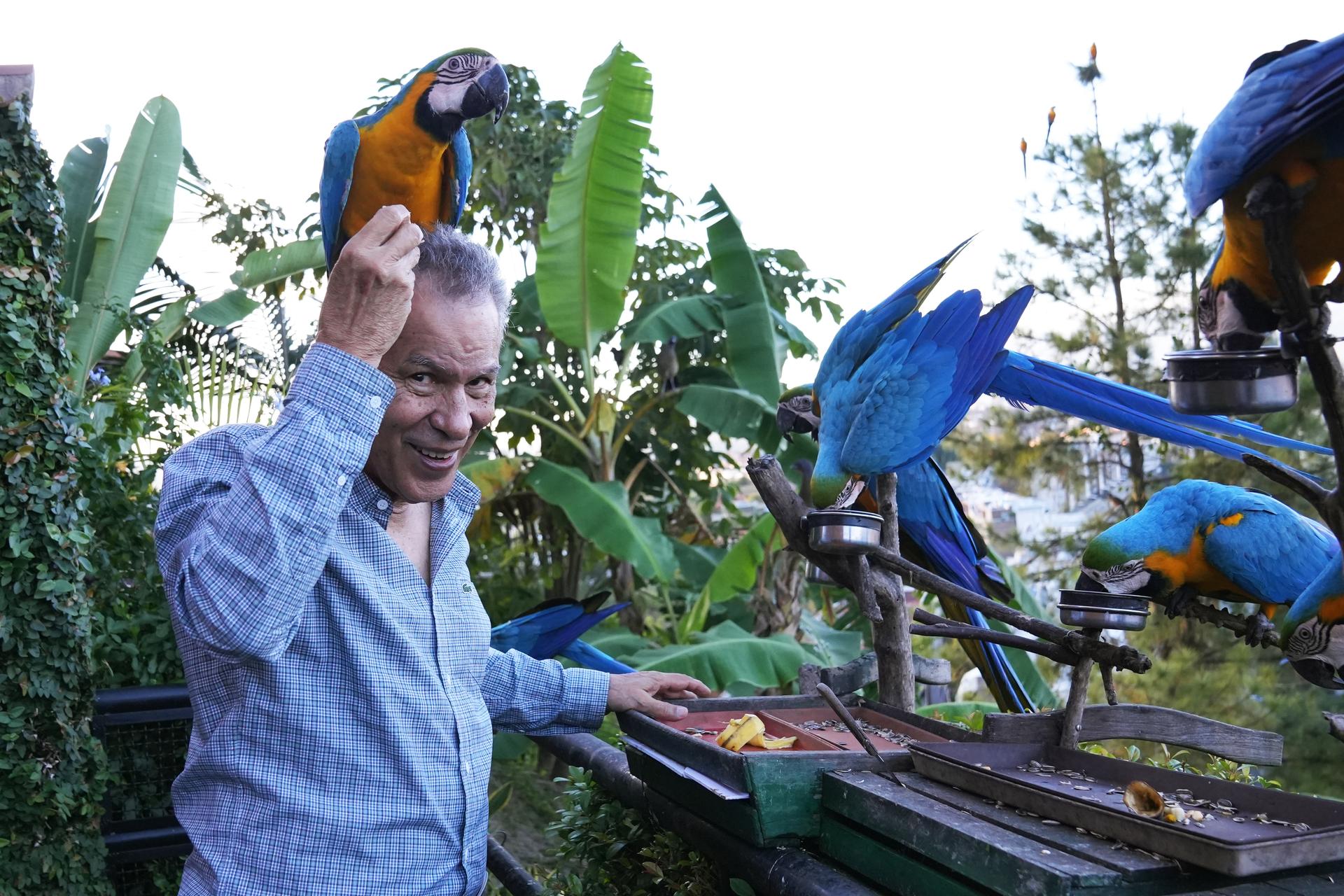
“The macaws distract me and pull me away from negative thoughts,” said Lucy Cortez, a graphic designer who works from home.
Every day, she feeds a group of blue and gold macaws that fly up to her apartment and perch on a small ledge where she also has some plants.
“I don’t know if there’s any other place in the world where you can interact with macaws from your window.”
“It’s very special,” Cortez said. “I don’t know if there’s any other place in the world where you can interact with macaws from your window.”
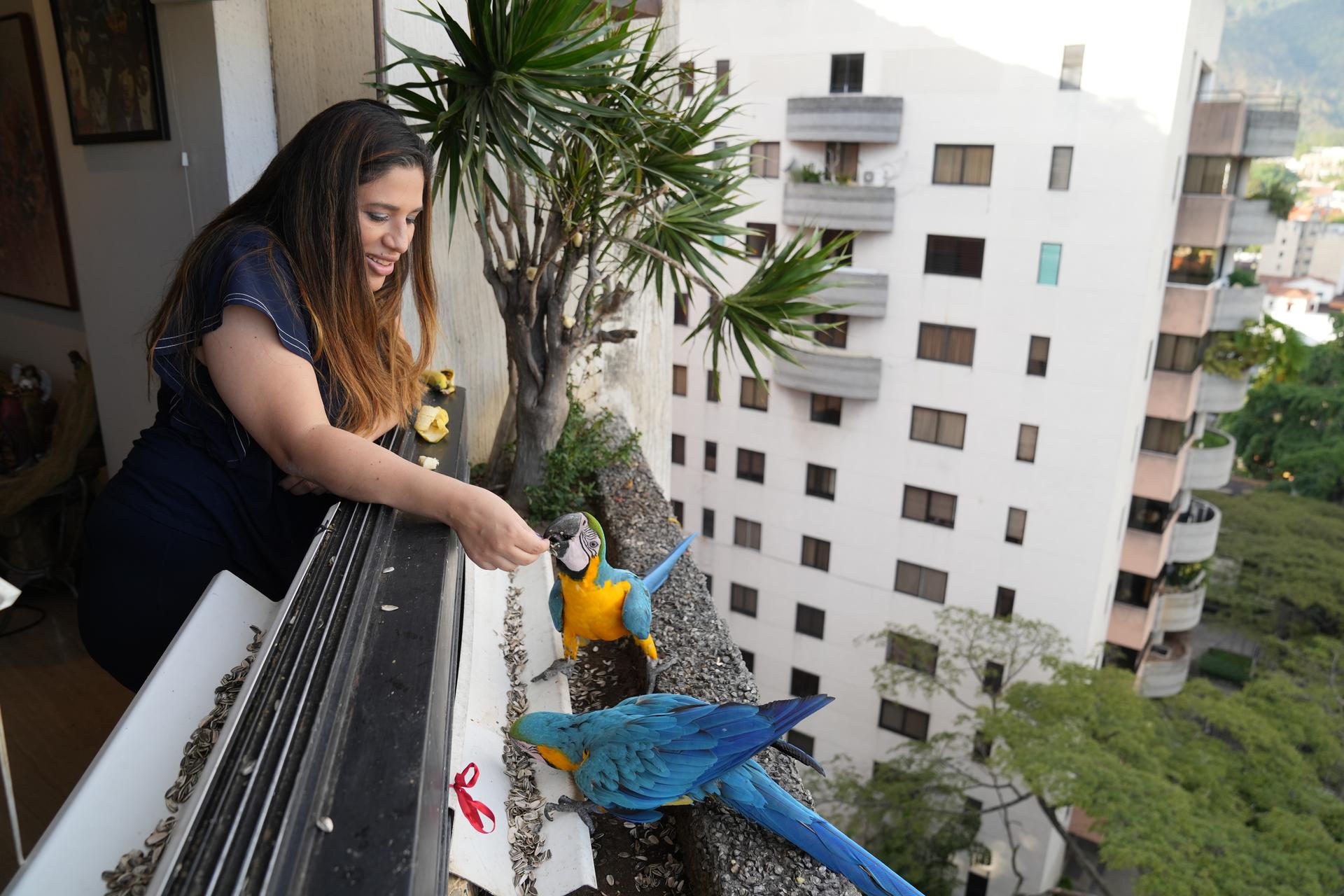
Macaws were first brought to Caracas in the 1970s by people who bought them in rural areas of southern Venezuela and smuggled them into the city as pets.
They were kept in cages in people’s homes. But they were noisy, and eventually, some people got tired of them and let them fly away.
Maria Lourdes Gonzalez, a biologist who studies these birds, said that the macaws found palm trees where they could make nests. And several tree species, like mango trees, provided them with food.
The birds reproduced successfully over the years thanks to the city’s mild weather and its abundant sources of food, and also because Caracas lacks the predators that hunt macaws in South America’s rainforests, like monkeys and eagles.
“In the wild, their survival rate is like one nestling for every two nests,” Gonzalez said outside her office at Simon Bolivar University, where macaws can be easily spotted in the afternoon. “Here, in Caracas, they lay three eggs and all of them will survive.”
According to Gonzalez there are at least 600 macaws flying around the city that have descended from pets, including the blue and gold macaws, and also scarlet macaws that are native to the Amazon.
These birds mingle with the one native species of macaw, a small apple-green one known as the maracaná or Ara Severus. But only the macaws that descended from pets seem to have little fear of humans.
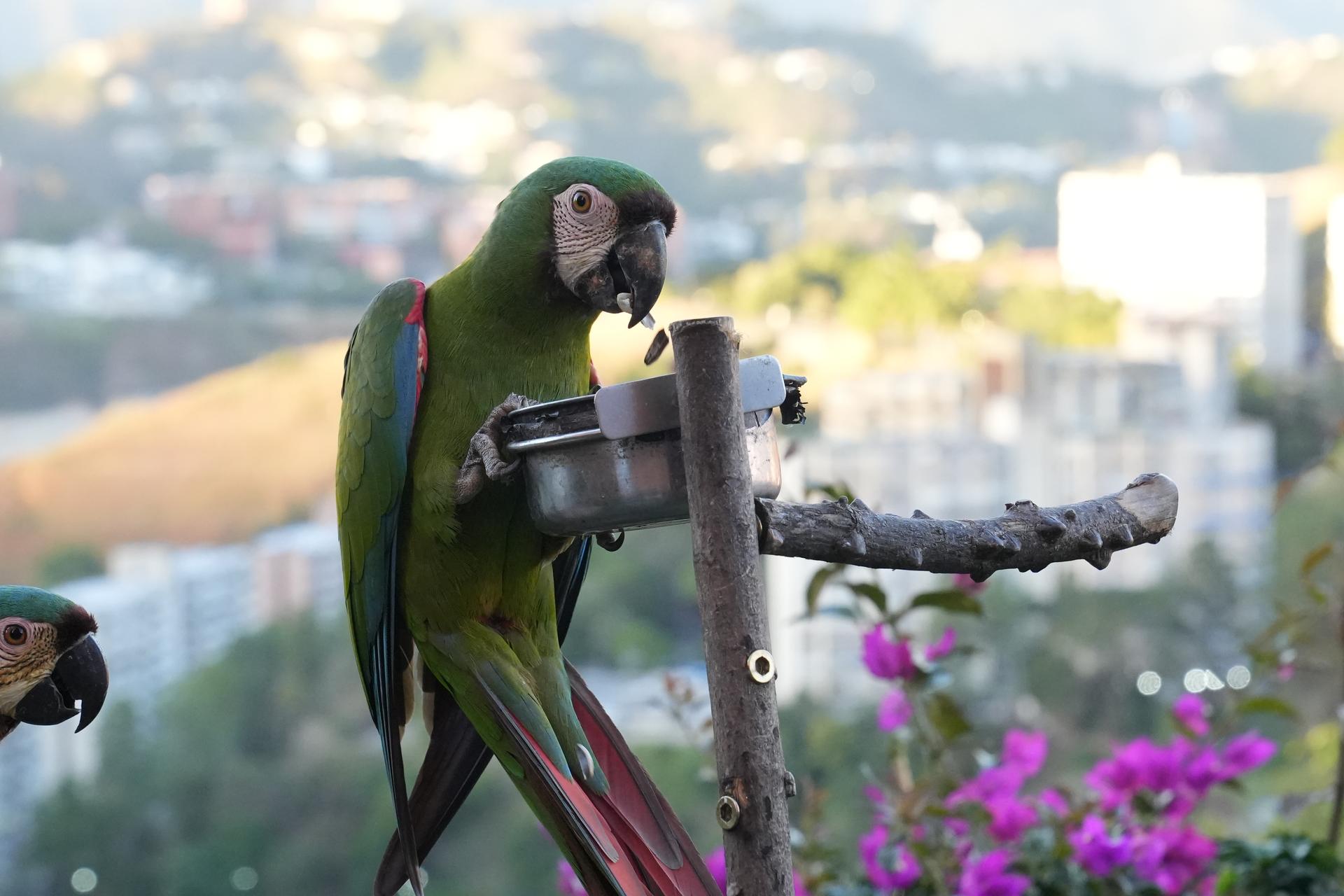
“They teach their nestlings to come to humans to get food,” Gonzalez said. “And they love to be in contact with us because we give food to them.”
As the birds become easier to spot, they have become a symbol of Caracas, where they appear on murals and souvenirs. Some locals also run Instagram accounts dedicated to the birds.
Karem Guevara runs an account with more than 100,000 followers. She leaves food for the birds on the ledges of her apartment’s windows and films them as they eat and play.
“There are people who have left Venezuela and miss seeing these birds,” she said. “And for them, this account is like a window so that they can continue to enjoy this spectacle.”
The city’s small tourism industry has also embraced the trend, with some agencies offering macaw-spotting tours.
In the busy neighborhood of Las Mercedes, the Ololo Hotel attracts the birds to its terrace every morning by leaving out a tray with sunflower seeds. That way the guests can take photos with the birds while they’re having breakfast.
“The macaws sort of bring tourists to us,” said Jean Paul Simon, the hotel’s owner. “We have guests who just come here to have some breakfast and, even though they’re not staying with us, they just come here to see the macaws.”
But even though the birds are popular with the city’s residents, the macaws’ future in Caracas isn’t guaranteed.
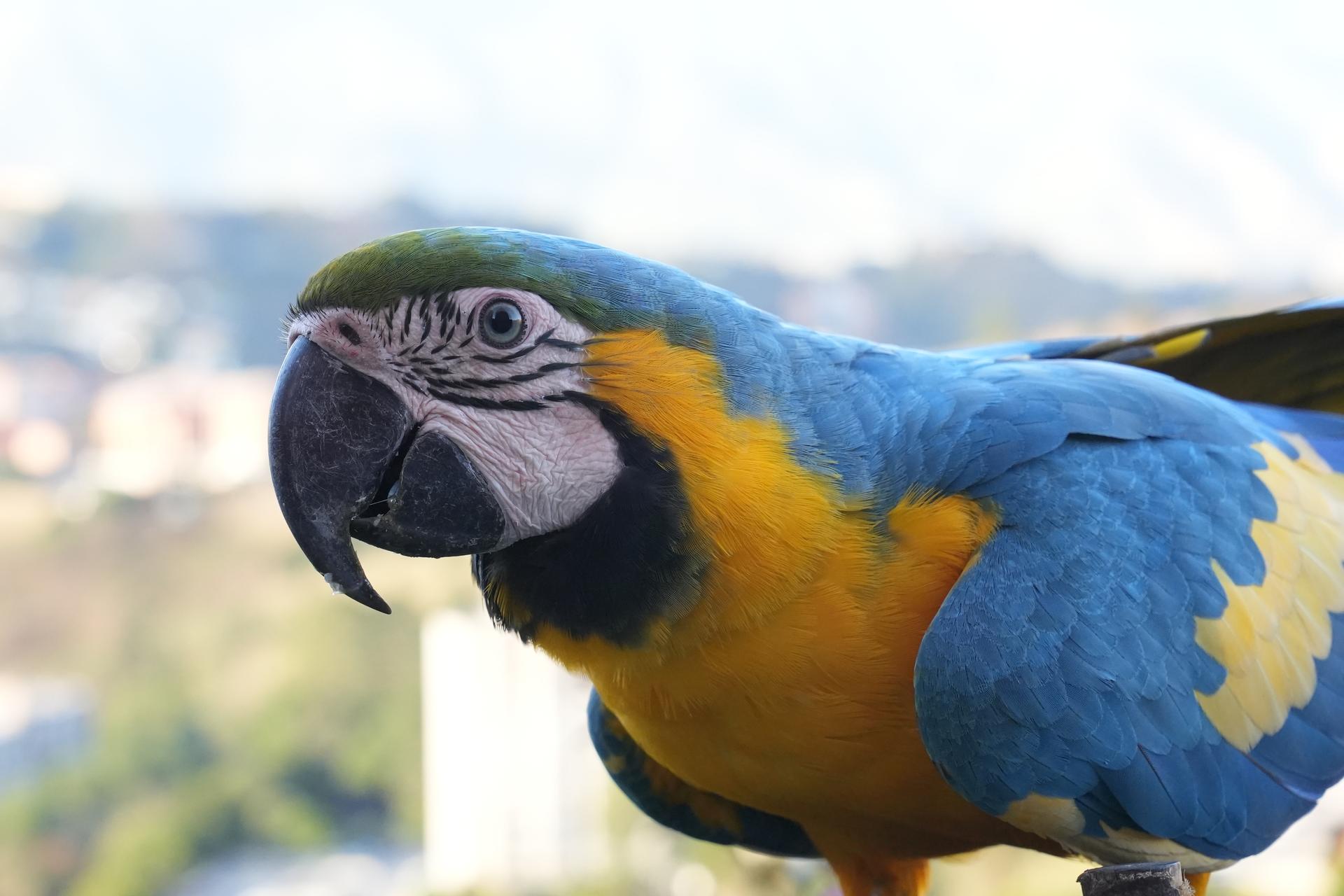
Biologist Maria Lourdes Gonzalez explained that the birds only nest in old palm trees, whose trunks have been hollowed out by a local insect.
Old palm trees don’t have leaves, and the city government has been removing some of them because they’re not pretty.
“Now, we have a huge population [that needs] to reproduce and, each year, there are less and less spaces to reproduce,” Gonzalez said.
So far, there hasn’t been an outcry to save the macaws’ habitat. Gonzalez said that if city workers continue to knock down the old palm trees, some of the birds might try to migrate to nearby cities that are 20 or 30 km away.
She said that, ultimately, the future of these birds depends on the humans who brought them to the city in the first place.
“This is an introduced species,” she said. “It’s a decision from the people if this population stays in Caracas or has to leave.”
Related: ‘Birds are everywhere!’ Women bird guides in Uganda set a global example
The World is an independent newsroom. We’re not funded by billionaires; instead, we rely on readers and listeners like you. As a listener, you’re a crucial part of our team and our global community. Your support is vital to running our nonprofit newsroom, and we can’t do this work without you. Will you support The World with a gift today? Donations made between now and Dec. 31 will be matched 1:1. Thanks for investing in our work!
